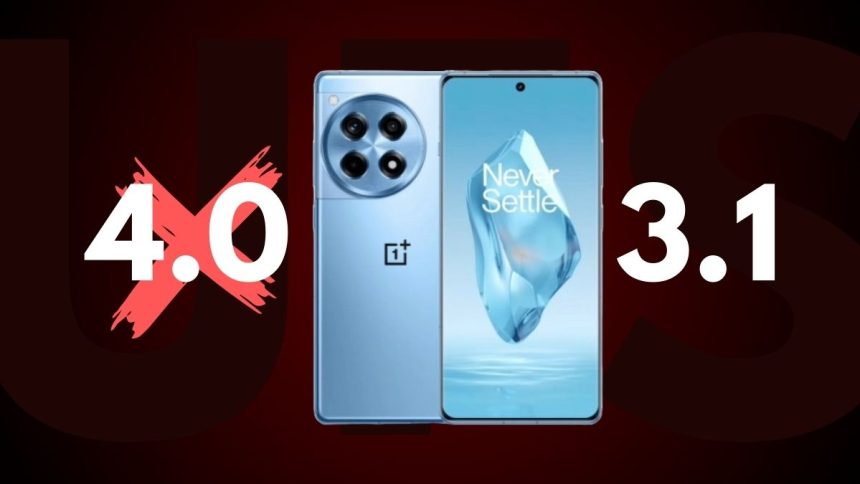In an earlier announcement and on their website, OnePlus stated that the 256GB version of their new OnePlus 12R smartphone would boast UFS 4.0 storage, offering faster read and write speeds. However, after discussions and confusion arose online, OnePlus has officially clarified that all versions of the OnePlus 12R, including the 256GB variant, actually use UFS 3.1 storage.
During the launch of the OnePlus 12R, we announced Trinity Engine, a new set of software algorithms that help keep your phone’s memory and storage running fast and smooth for years to come. Due to an error, we stated that the storage enhanced by Trinity Engine would be UFS 4.0 in some variants. I can now confirm that the storage in all variants of the OnePlus 12R is still enhanced by Trinity Engine but is actually UFS 3.1.
Kinder Liu, OnePlus President and COO
The company has acknowledged the mistake and apologized for any confusion it may have caused. They have also updated their website to accurately reflect the UFS 3.1 specification.
While UFS 4.0 does offer superior performance compared to UFS 3.1, OnePlus assures users that the 12R will still deliver excellent performance in terms of reading and writing data. This is supported by the phone’s use of the new Trinity Engine software suite, which optimizes memory and storage management for improved speed and efficiency. Additionally, the company emphasizes that the OnePlus 12R was rigorously tested with UFS 3.1 and is certified by TUV SUD to remain smooth and responsive for 48 months.
Key takeaways:
All OnePlus 12R versions (128GB and 256GB) use UFS 3.1 storage, not UFS 4.0 as previously mentioned.
OnePlus apologizes for the error and has updated their website with the correct information.
UFS 3.1 still offers good performance, further enhanced by the Trinity Engine software.
OnePlus 12R is TUV SUD certified for sustained smooth performance over 48 months.
While the lack of UFS 4.0 might be disappointing to some, it’s important to consider that UFS 3.1 remains a capable and widely used storage standard. Ultimately, the decision of whether this clarifiesation affects your purchase decision depends on your individual priorities and how much weight you place on storage speed.






